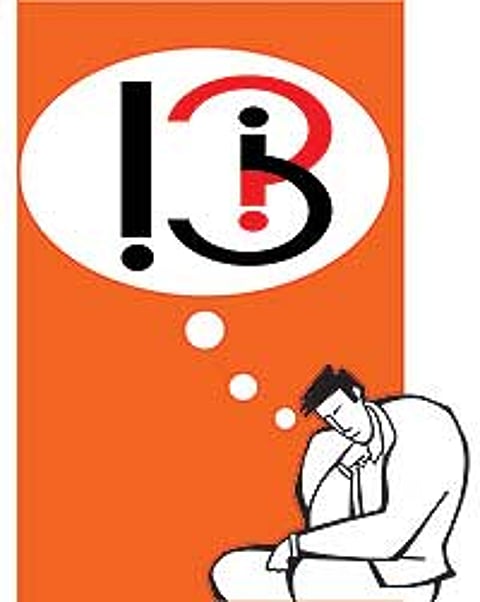O
utlook has turned 13. Don't cancel your subscription; there is nothing to fear about the thirteenth year. Despite its ill-repute in many parts of the world, 13 is nothing more than a number, just one number in a harmless and immensely useful abstract system of counting and measuring developed by our ancestors.Some people, though, would rather sleep on a park bench than in room No. 13 of a hotel. Some others would rather go hungry than eat at a table of 13. On the thirteenth day of a month, they'd rather hole up at home, especially if it happens to be a Friday as well. Triskaidekaphobia—that is, fear of the number 13—is a collective mental disorder that was widespread in the western world in the late 19th century. It is still far from extinct and has taken hold in India as well.
There are many historical backdrops to 13 being thought of as unlucky. Ancient Persians identified 13 with uncertainty, disorder and danger as they thought it stepped beyond the control of the 12 signs of the zodiac. Thirteen is omitted in Hammurabi's code (circa 1760 BC). The 13th Tarot card is called Death. In many traditions, Satan is the 13th archangel. The Vikings blamed Loki—the 13th god in the Nordic pantheon—for the murder of Baldur. The Wicca teachings prescribe 13 witches for a Sabbath. Perhaps the chief reason for the prevalence of the fear of 13 is its association by legend to Judas's betrayal of Jesus. Judas was the 13th to join the Last Supper, which took place on a Friday. Phobias, whether collective or individual, swiftly grow out of the context of their origin and break loose from the tiny leash of reason on which they were brought in to explain some aspect of frightening reality. They then gain enormous power and become resistant to reason or argument.
The superstition of 13 turns up in the works of writers like Wilkie Collins, Fyodor Dostoevsky, Henrik Ibsen, Leo Tolstoy, Jules Verne and Oscar Wilde. Even today, many hotels, hospitals and courthouses choose to call rooms or floors that should normally be numbered 13 something else. San Francisco has Funston Avenue instead of 13th Avenue between the 12th and 14th avenues. Some airports do not have gate No. 13 and some airlines don't have seat No. 13 on planes. The Kerala High Court building does not have a Room No. 13 among its new courtrooms.
However, India has escaped the full weight of epidemic triskaidekaphobia. But look at our homegrown absurdities! Politicians schedule meetings at "auspicious" hours allegedly dictated by planets. Government buildings are constructed and reconstructed according to ancient religious notions. The media are carried away by passionate debates on whether cost-efficient shipping routes must be sacrificed to the belief that the contours of a millenia-old formation of rocks were shaped by legendary characters.
How can we free India from superstition? There's an inspiring model. Capt William Fowler, a veteran of the American Civil War, founded The Thirteen Club in New York, whose 13 members met for their first common dinner in Room No. 13 of the Knickerbocker Hotel on Friday, January 13, 1881. To reach the table they had to go under a ladder, there was lots of salt was spilled on the floor, crossed forks lay on the plates and the entry was decorated with a banner that read: Nos Morituri Te Salutamus (We who are about to die salute you)! Capt Fowler took a year to convince 12 prominent New Yorkers to join him for this dinner. But after all the participants survived the experiment, they developed a taste for superstition-bashing. They must have realised how gratifying it is to overcome irrational fears.
Isn't it about time that modern, 21st century India, on its way to the top of the world, took courage from the conclusions of science and stopped believing in the supposed magical powers of numbers, planets, lines on the palm, secret words, ghosts, rocks and black cats? With this in mind, I wish Outlook a happy 13th birthday.
